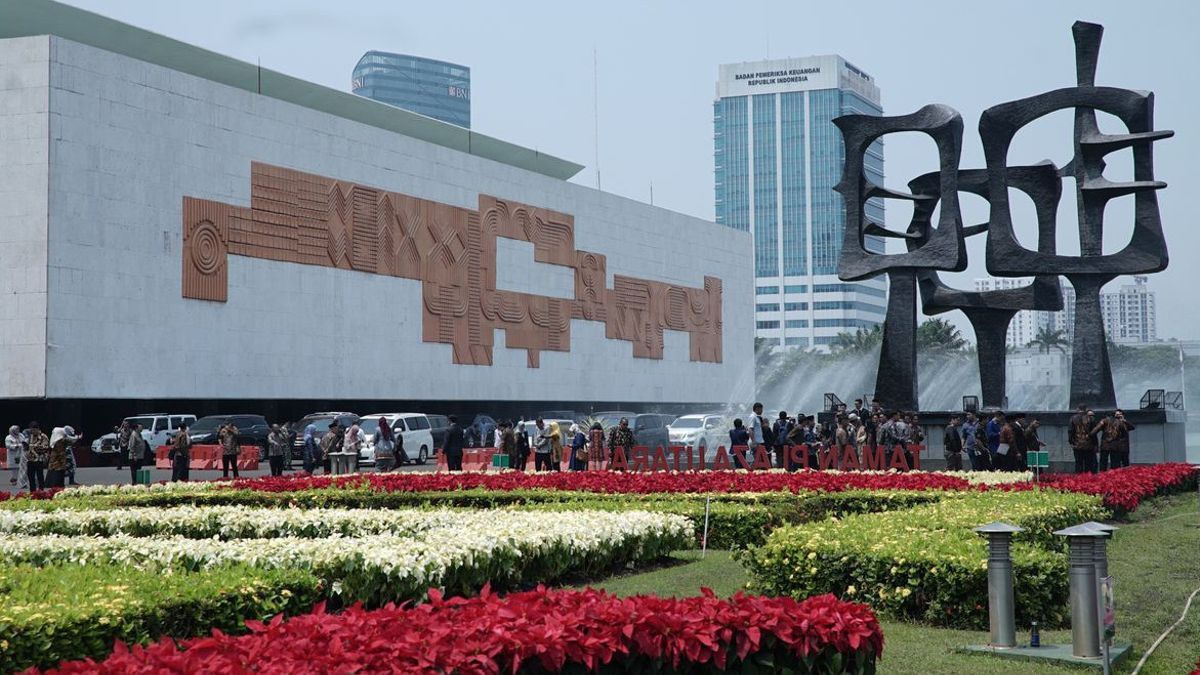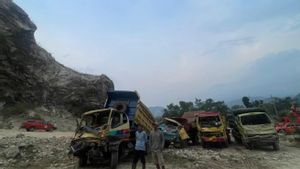JAKARTA - Executive Director of Amnesty International Indonesia, Usman Hamid, said that the passage of the Omnibus Law on Work Creation is evidence of the government's and the DPR's non-commitment to upholding human rights.
Because, as policy makers, both of them did not consider the rejection by the community towards the substance of this controversial law.
"Those who oppose because of the substance of the Ciptaker and the procedures for drafting this new law are not considered by policy makers at all. Members of the council and the government, it seems, prefer to listen to small groups who benefit from this rule. Meanwhile the rights of millions of workers are now under threat," he said. Usman in his written statement quoted on Tuesday, October 6.
According to him, civil society groups and workers should continue to be involved in the discussion of this law. This is because they will be the ones who will directly bear the impact of the enactment of this law.
In addition, Usman assessed, with the passage of the Omnibus Law on Work Creation, it would provide space for companies and corporations to exploit workers and lead to their disobedience to provide minimum wages according to the law.
"Not to mention that companies are no longer obliged to appoint contract workers to become permanent employees. Regulations like this have the potential to cause unfair treatment for workers because they will continue to be temporary employees," he said.
Therefore, Amnesty International Indonesia then urged the DPR to revise the problematic rules in the law. Human rights, said Usman, should be a priority in every decision making.
"The government must also protect and guarantee the freedom of opinion and expression of those who have been harmed by the ratification of this Ciptaker. The COVID-19 pandemic again cannot be used as an excuse to protect their rights, because speaking out is the only way to be heard for those who have been deprived of their rights. , "he said.
"Don't let this ratification be the beginning of a new human rights crisis. Those who oppose the new policy are silenced," he added.
In his statement, Usman also explained a number of articles that Amnesty International Indonesia considered would have the potential to cause human rights violations for workers. The articles that are in the spotlight are:
The entry of Article 88B which gives freedom to employers to determine the unit of output assigned to workers as the basis for calculating wages (per piece wage system). There is no guarantee that the piece rate system for determining the minimum wage in a particular sector will not end up below the minimum wage Abolition of Article 91 of the Manpower Law, which requires that the wages agreed by employers and workers should not be lower than the minimum wage under statutory regulations invitation; If the agreed wage is lower than the minimum wage in statutory regulations, the employer is obliged to pay the workers according to the minimum wage standard in the statutory regulations. If it is violated, the employer will be sanctioned. Abolishing Article 91 of the Manpower Law will lead to a lack of compliance by employers with the minimum wage according to law. In other words, it is more likely that employers will pay workers lower wages and do nothing because there are no more sanctions that require them to do so. Inclusion of Article 59 of the Manpower Law regarding changes in the status of PKWT to PKWTT. However, the maximum term of the temporary work agreement and the maximum period of extension have not been specifically regulated as in the Manpower Law, however, it is stated that they will be regulated in the PP. Note: any technical rules created following the adoption of the Omnibus should not exempt employers from their obligation to change the status of temporary workers to permanent workers. This eliminates job security. The working time limit in Article 77 paragraph (2) is still exempted for certain sectors. Details of the working period scheme and certain sectors in question will be further elaborated through a government regulation (PP). This raises concerns that there are differences in working time limits for certain sectors and that compensation could be detrimental to workers in certain sectors, as they could be required to work longer hours and receive lower pay for overtime than workers in other sectors.The English, Chinese, Japanese, Arabic, and French versions are automatically generated by the AI. So there may still be inaccuracies in translating, please always see Indonesian as our main language. (system supported by DigitalSiber.id)









